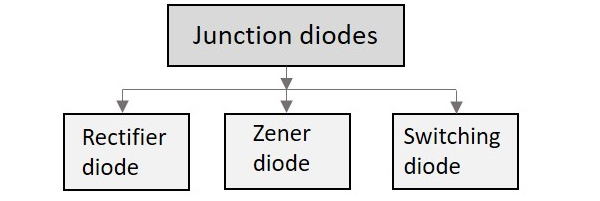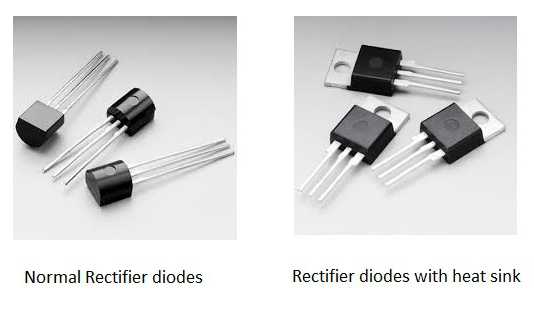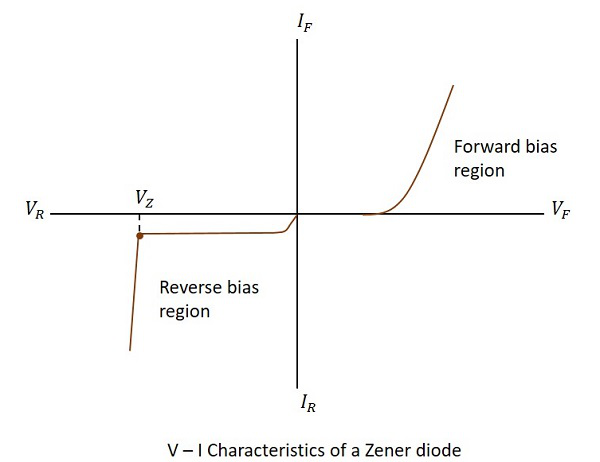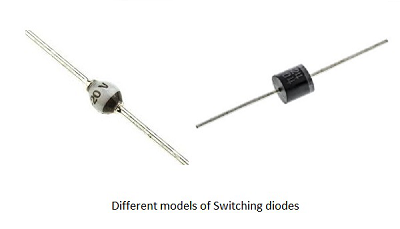
- Basic Electronics - Materials
- Basic Electronics - Energy Bands
- Basic Electronics - Semiconductors
- Basic Electronics - Hall Effect
- Resistors
- Basic Electronics - Resistors
- Circuit Connections in Resistors
- Non-linear Resistors
- Basic Electronics - Linear Resistors
- Basic Electronics - Fixed Resistors
- Capacitors
- Basic Electronics - Capacitors
- Circuit Connections in Capacitors
- Variable Capacitors
- Basic Electronics - Fixed Capacitors
- Polarized Capacitors
- Inductors
- Basic Electronics - Inductors
- Basic Electronics - Inductance
- Circuit Connections in Inductors
- Types of Inductors
- Basic Electronics - RF Inductors
- Transformers
- Basic Electronics - Transformers
- Types of Transformers
- Transformers based on Usage
- Transformer Efficiency
- Diodes
- Basic Electronics - Diodes
- Basic Electronics - Junction Diodes
- Special Purpose Diodes
- Optoelectronic Diodes
- Transistors
- Basic Electronics - Transistors
- Transistor Configurations
- Transistor Regions of Operation
- Transistor Load Line Analysis
- Types of Transistors
- Basic Electronics - JFET
- Basic Electronics - MOSFET
- Basic Electronics Useful Resources
- Basic Electronics - Quick Guide
- Basic Electronics - Useful Resources
- Basic Electronics - Discussion
Basic Electronics - Junction Diodes
There are many types of diodes depending upon many factors such as the frequency used, their working and construction, their applications etc. Let us go through few of them.
Junction diodes
The junction diodes are the normal PN junction diodes but differ in construction. There are three types of junction diodes, as shown in the following figure.

Rectifier Diode
These diodes are the normal PN junction diodes, which allow current to flow through them in only one direction and stop in the other direction. These diodes are used in rectifier circuits to convert alternating current into direct current.

In the above figure, we can see the same rectifier diodes with a metal projection. This is added to the diode to minimize the heat distribution which might affect the diode sometimes. Such a metal projection is called as Heat sink. These help in the improvement of the diode performance and the diodes will be able to withstand high powers, without getting affected.
There are circuits such as Half wave rectifier and Full wave rectifier circuits which use these diodes. These circuits are discussed in ELECTRONIC CIRCUITS tutorial. These rectifier circuits are used in Power supply sections of many circuits where alternating input current has to be converted into direct current for that circuit applications.
Zener Diode
This is a special kind of diode which permits current flow not only in forward direction, but also in reverse direction. A normal diode, when operated in reverse bias, gets damaged if the reverse current above a certain value is passed through it. This certain value is called as the Breakdown voltage.
The breakdown voltage of a Zener diode is very low. But this diode allows the reverse current to pass through it, once this breakdown voltage is exceeded. That breakdown voltage is called as Zener Voltage. Hence there is a controlled breakdown which does not damage the diode when a reverse current above the Zener voltage passes through a Zener diode.

A Zener diode in its reverse bias, exhibits a controlled breakdown voltage and it allows the current flow to keep the value of voltage across that Zener diode close to the Zener breakdown voltage value. This value of Zener breakdown voltage makes any Zener diode to be chosen for certain applications.
Avalanche diode is another diode which has the similar characteristics of Zener diode. The avalanche breakdown takes place across the entire PN junction, when the voltage drop is constant and is independent of current. This avalanche diode is used for photodetection.
V-I Characteristics of a Zener diode
The V-I Characteristics of a Zener diode are common for any diode when operated in forward bias. But the reverse bias operation of a Zener diode makes it very important to consider. Let us have a look at the graph.

The point where the bent is shown in the reverse bias operation, is the Zener breakdown voltage, after which the diode allows high reverse currents through it. This Zener voltage is indicated by VZ. This incredible quality of Zener diode made it the most reliable one and have got many applications too.
Applications of Zener diode
This diode has many applications such as −
- It is mostly used as a Voltage Regulator.
- Provides fixed reference voltage in transistor biasing circuits.
- For peak clipping or limiting in wave shaping circuits.
- As a Surge protector in many circuits.
- For meter protection against damage from accidental applications.
Switching Diode
This is a normal single PN junction diode which is especially designed for switching purposes. This diode can exhibit two states of high and low resistance clearly which can be used alternatively.

The junction capacitance of this diode is made very low so as to minimize other effects. The switching speed is made quite high. When the diode has high resistance it works as an open switch and it acts as a closed switch during low resistance. This transition occurs at a faster rate in switching diode, than in any ordinary one.
Applications of switching diode
These have many applications such as −
- Used in high-speed rectifying circuits
- Used in ring modulators
- Used in radio frequency receivers
- Used as reverse polarity protectors
- Used for both General purpose and high speed switching applications